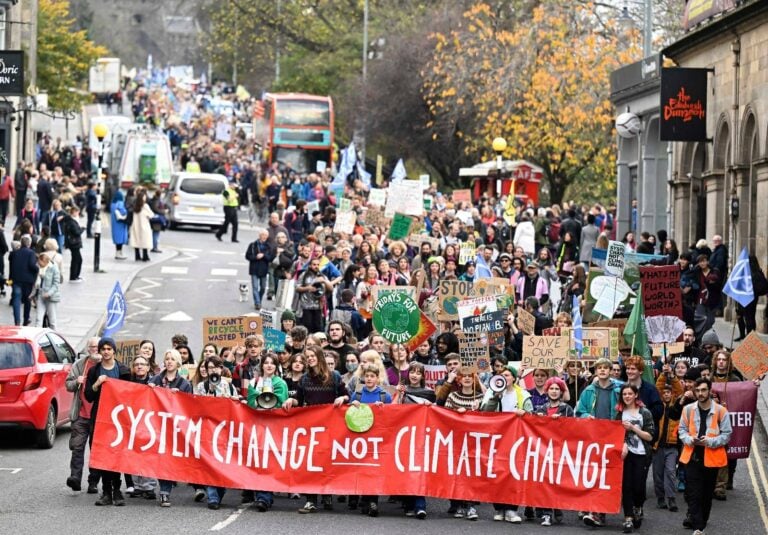
A Growing Zoo of Black Swans
by Peter Wahl
When the global financial system crashed in 2008, the metaphor of the black swan went viral. Those who believed in efficient financial markets had been fundamentally wrong. There were black swans. Financial markets could not regulate themselves and proved to be inherently unstable.
Since then, the 2008 black swan has had quite a bit of company. In the financial/monetary sphere, there was the EURO crisis, the Greek drama, free “helicopter money” from the ECB for banks, zero interest rates and the biggest bank in the EU, Deutsche Bank, in a serious crisis. In the political sphere, some black swans in 2016 were particularly impressive, including the refugee crisis, a very big, fat black swan, the BREXIT, along with heightened geopolitical conflicts in the Middle East and Ukraine – in both cases with direct involvement of the EU – and rising tensions in the South Chinese Sea. Last but not least, there was the big surprise of the US elections. Here, the good news is that Hillary did not make it; the bad news: Trump won. And we’ve left off our list the baby swans, such as the referendum on the association treaty with Ukraine in the Netherlands, the coup in Turkey and the referendum in Italy.
Of course, there were also some encouraging developments. TTIP was taken off the agenda, TPP was cancelled and the EU-Canada agreement (CETA) was defused to a certain extent thanks to impressive pressure from below, a tough regional government in the Belgian province of Wallonia and the German Supreme Court. And in some countries, the reaction to the crises has not only been reactionary, as the performance of Bernie Sanders and Jeremy Corbyn indicates. However, the overall picture remains dramatic.
Some people are talking about the UCAVA syndrome as the signum of our times: Uncertainty, Complexity, Ambiguity, Volatility and Acceleration, or as Hamlet would have put it: The time is out of joint.
Of course, there is a knot of multifaceted crises behind all this. Neoliberal globalisation is increasingly unveiling its ugly face. Finance-driven capitalism has proven to be a dead end, increasing instability and economic problems rather than solving them. Increasing economic and social inequality in almost every society is not only a barrier to (sustainable) growth, but fuels the crisis of representation and democracy and leads to political instability. All this is happening in the midst of a deep transformation of the international system. 500 years of European supremacy – and of its US offspring – seem to be coming to an end. The world is moving towards a multi-polar order.
The EU has been particularly affected. The entire construct has proven to be too fragile and inadequate to cope with the challenges. Crisis management and the common currency are an economic and political disaster. Even strong supporters of the EU like Joseph Stiglitz are now advocating(opens in new window) an amicable divorce from the Euro. And Mark Rutte, Dutch Prime Minister and typical representative of Europeanist elites, admits(opens in new window) : “If you love Europe, stop dreaming of more Europe and start fixing problems. There is a real risk.”
However, fixing problems requires the necessary political, institutional, legal and financial resources, along with public support. The EU, as a hybrid coalition of nation states and supra-national components, does not have these at its disposal. So, muddling through, or “driving on sight” as Angela Merkel uses to describe her political methodology, will continue, but will not solve the continuous crises. The year 2017 will be one of many challenges, with elections in the Netherlands, France and Germany, and Italian politics, which all could produce another black swan.
We wish all our readers peaceful holidays and a good deal of courage in facing the challenges and actions needed in 2017.
This article was first released in the ‘EU Financial Reform’ newsletter which is published by SOMO and German NGO WEED. Go to our archive to read all EU Financial Reform Newsletters(opens in new window) or to subscribe.
Related news
-
Why share buybacks are bad for the planet and peoplePosted in category:Opinion
 Myriam Vander StichelePublished on:
Myriam Vander StichelePublished on: Myriam Vander Stichele
Myriam Vander Stichele -
 The trillion-dollar threat of climate change profiteersPosted in category:Long read
The trillion-dollar threat of climate change profiteersPosted in category:Long read Myriam Vander StichelePublished on:
Myriam Vander StichelePublished on: -
The treaty trap: The miners Published on:
 Vincent KiezebrinkPosted in category:Publication
Vincent KiezebrinkPosted in category:Publication Vincent Kiezebrink
Vincent Kiezebrink

